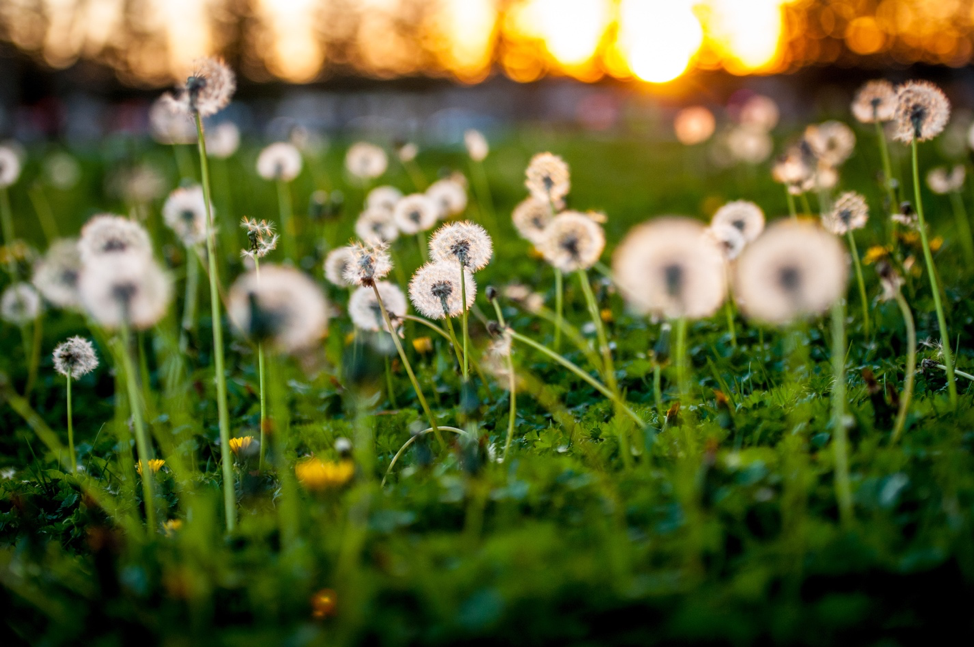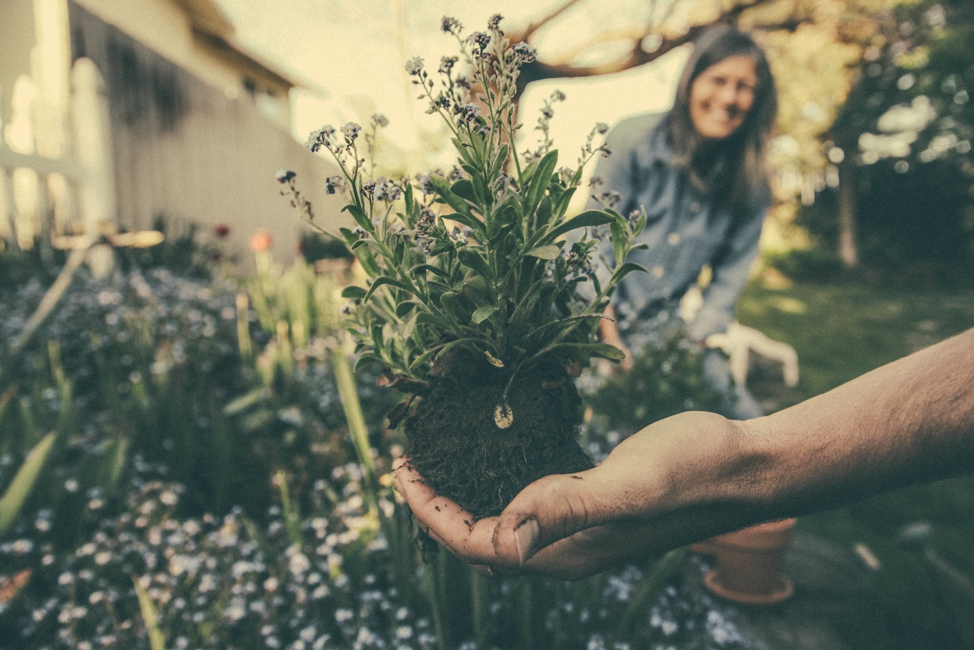It’s no secret these days that bees are extremely important. In addition to being everyone’s favorite picnic guests, bees function as some of the great pollinators in the world. According to the U.S. Department of Agriculture, they feed 80 percent of the crops that we eat including broccoli, apples, asparagus, blueberries and coffee to name a few. They also pollinate alfalfa, a grass that feeds beef and dairy cows.
Because of their importance to our food crops it is more crucial than ever to support these little buzzing beauties. Here are some easy ways to help #savethebees (without going full-on beekeeper).

Put down the weed-eater! Bees don’t have any use for that perfectly manicured sea of St. Augustine. They’re over it. They prefer something similar to their natural habitat—a meadow.
Think about letting a portion of your yard go back to its roots. Allow dandelions and clover to grow again (two of bees' favorite delicacies). Not only will you spend less time mowing your lawn, the bees will thank you for it.
Pesticides and herbicides contain chemicals that are very harmful to bees and other beneficial insects. Avoid chemical sprays on your plants and yard. Do some research and try some natural, bee-friendly alternatives. Even an herbicide or pesticide that labels itself as "organic" could still be a hazard. So, put down that bottle of Round Up and try some natural alternatives (and use them as sparingly as possible). And don't forget the soil! You can build up the dirt in your garden, clear weeds and attract the beneficial worms with something you probably have in your garage: cardboard boxes.

You've always wanted a private garden oasis, and now you have the perfect excuse to plant one. The bees need you!
Plant an array of herbs and flowers that attract bees (like mint, lavender, and poppies, to name a few). Ideally, pick flowers that are native to your area and will bloom at different times of the year. Put a shallow container of water in your garden so that the bees have a place to re-hydrate and add some twigs and pebbles to give them a place to land. Make some refreshing beverages with your freshly-planted herbs and scatter patio furniture at random...for the bees.

Supporting your local growers and supporting bees go hand in hand. When you can, buy your fruits and vegetables (and honey) from local farmers through a CSA (community supported agriculture) box or from local farmers markets. The more you can support sustainable, earth-friendly agriculture the better, but if you don't have access, eating organic goes a long way to help the bees!
There are a lot of misconceptions going around about bees and how important they are to the world we live in - it's time to educate yourself! Here are a few resources that will make you say "Wow. I didn't know that." Throw a little delight into your day and listen to Getting Curious with Jonathan Van Ness. In his episode "How Can We Be Less Rude to Bees?" Everyone's favorite Queer Eye host interviews Prof. James Nieh about the diseases that are killing off our bees, how bees communicate, and how bees are pretty much the only things making sure we get the almonds we love.